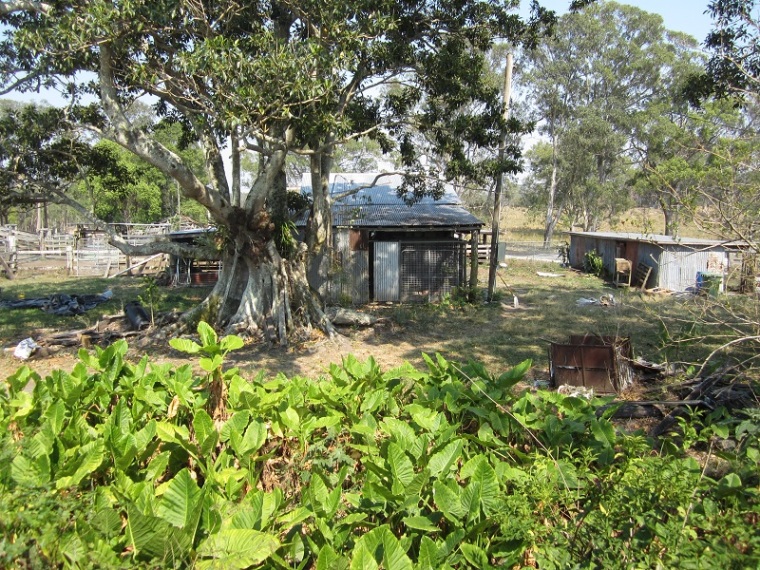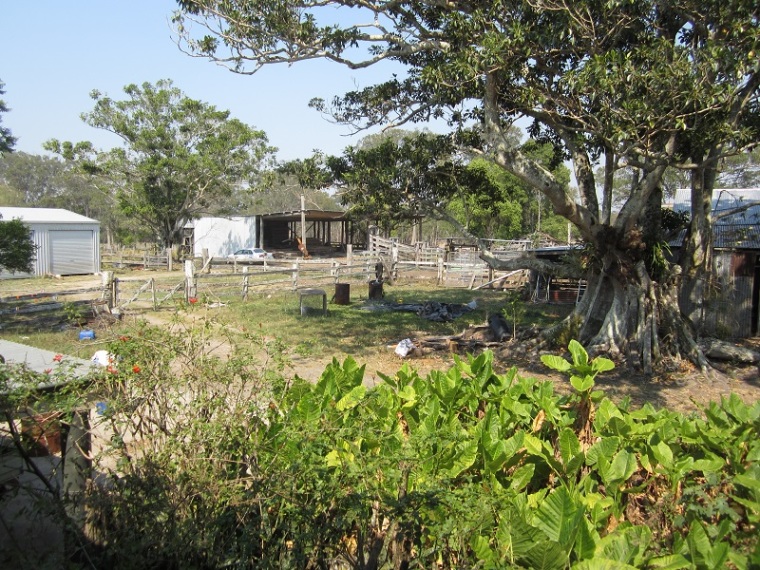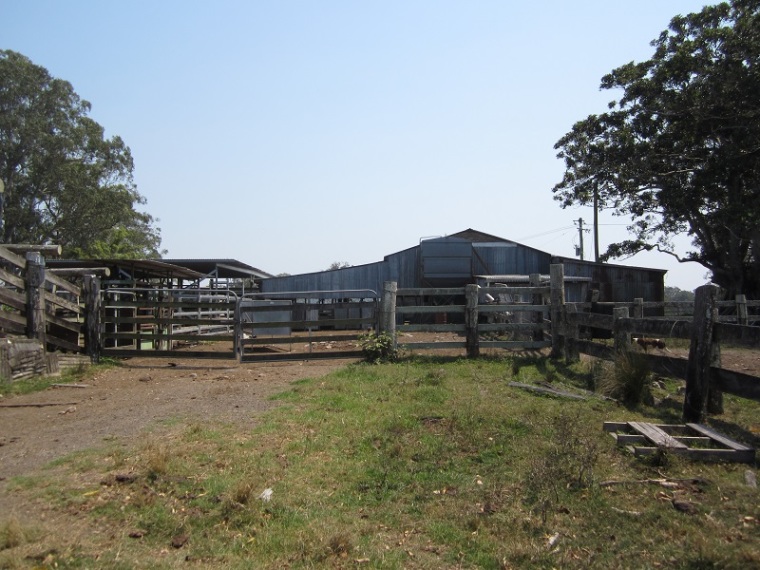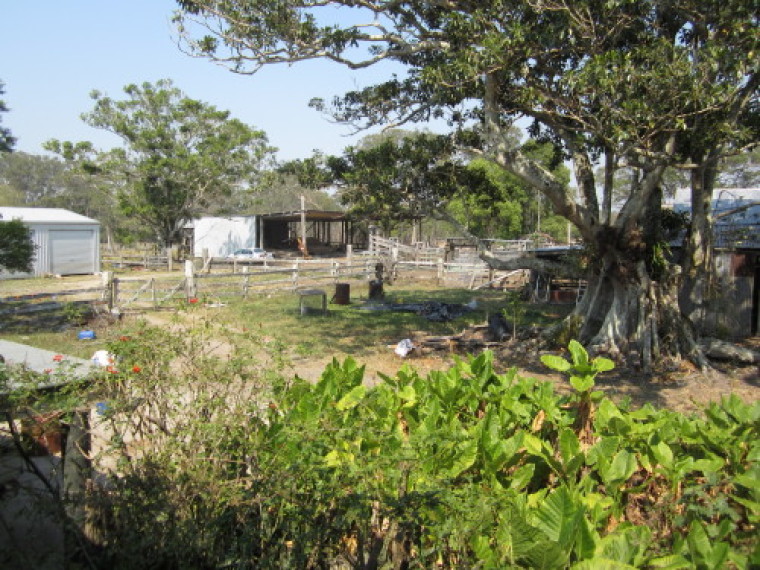
The farm is now a place for renewables
The phrase 'think globally, act locally' has been a mantra of the environmental movement since the late 1960s, but its origin probably dates back to town planning initiatives in the early 1900s.
It sometimes seems as though we make no difference to the wider world, even if we work hard organising our own little bit of energy conservation or recycling. However, the reverse is true. Many people 'acting locally' can certainly have a wider 'global' impact, as thetwo articles summarised below will show.
Some years ago the University of Wollongong and TAFE Illawarra team received the awards for their Illawarra Flame House at the first Solar Decathlon China finals, for a retrofitted old-style Australian fibro bungalow, suitable for elderly residents:
FIRST PLACE IN THE SOLAR DECATHLON CHINA FINAL; with 957.6 of a possible 1000 points
(plus a host of other awards: http://illawarraflame.com.au/media.php#107)

The farm is now a place for renewables
Pleasing reports about energy and waste reduction
A report from the NSW three-yearly 'State of the Environment' report indicates that Sydney is getting cleaner with respect to pollution and energy waste – but invasive weeds are still a problem and biodiversity of the natural world is decreasing.
''Notwithstanding the growing population, which continues to exert pressure on the environment, water usage, electricity usage, and recycling rates are improving,'' said the acting chairman of the EPA, Mark Gifford. ''Air quality has also improved significantly in the last 30 years.''
Total car use and total electricity have declined over the past 25 years.
Although some land is degraded, there are more national parks and protected waterways than three years ago, and the air quality has improved.
An analysis of so-called 'green buildings' indicates that some of the advocated building methodologies to reduce energy and pollution really do work.
This article summarises a report by the Green Building Council of Australia which has analysed 428 green star-certified buildings covering offices, shopping centres, schools, libraries, factories and hospitals.
“On average, these buildings produced 62% fewer greenhouse gas emissions and used 66% less electricity than average Australian buildings”, the report concluded. They were even performing better than new buildings which were not green-star rated.

The farm is now a place for renewables
Ongoing research into new areas of 'greener' energy
These are not just feel-good one-off reports. Scientists and technologists are continuing, all the time, in their research efforts to improve our sustainability. This is necessary as our population increases on this planet, and as rising middle classes want all the 'goodies' that we have become used to to make our lives comfortable. Eventually, some of the best innovations will be taken up by others in society, leading to the pleasing results of reducing energy consumption.
Three articles on the same day in 'Climate Spectator', plus one from the Sydney Morning Herald, indicate some of the productive areas of research that are still ongoing.
These articles describe the following innovations:
How the process of trying to make biofuels from algae is starting to reap rewards: http://www.businessspectator.com.au/news/2013/6/17/cleantech/australian-group-converts-algae-green-crude?
The development of a real-time smart-phone sized monitor for tracking domestic energy useage http://www.businessspectator.com.au/news/2013/6/17/smart-energy/origin-rolls-out-real-time-energy-monitor?
How such a monitor could be used in an 'ideal' way in the future, if some technological problems can be overcome http://www.businessspectator.com.au/article/2013/6/17/smart-energy/chasing-australias-energy-ideal?
The reporting of a record amount of renewable energy (total 13%) being produced in Australia in 2012. Of this amount, over half is from hydro, about a quarter from wind and almost one-tenth from solar. http://www.smh.com.au/environment/record-in-renewables-20130604-2no9i.html
A more recent report indicates that South Australia, amazingly, is producing 30% of its energy from re-newables; mostly from wind. http://www.businessspectator.com.au/article/2013/7/11/renewable-energy/sa-verge-30-renewables
But, as we have seen, all this without coal fired electricity supply for which there is an abundance of both coal and power generation, we are a long way off yet. South Australia was a classic example of this.
We should all try to keep up the good work: 'think globally, act locally'.
Proverbs 21 verse 20 (ESV) states: “Precious treasures and oil are in a wise man's dwelling, but a foolish man devours it”. By emulating the wise man, it seems we can – and do – make a difference in preserving our precious resources and at the same time, reducing pollution.

The farm is now a place for renewables
Dr Mark Tronson is a Baptist minister (retired) who served as the Australian cricket team chaplain for 17 years (2000 ret) and established Life After Cricket in 2001. He was recognised by the Olympic Ministry Medal in 2009 presented by Carl Lewis Olympian of the Century. He mentors young writers and has written 24 books, and enjoys writing. He is married to Delma, with four adult children and grand-children. Dr Tronson writes a daily article for Christian Today Australia (since 2008) and in November 2016 established Christian Today New Zealand.
Mark Tronson's archive of articles can be viewed at
http://www.pressserviceinternational.org/mark-tronson.html

Dr Mark Tronson - a 4 min video
Chairman – Well-Being Australia
Baptist Minister 45 years
- 1984 - Australian cricket team chaplain 17 years (Ret)
- 2001 - Life After Cricket (18 years Ret)
- 2009 - Olympic Ministry Medal – presented by Carl Lewis
- 2019 - The Gutenberg - (ARPA Christian Media premier award)
Gutenberg video - 2min 14sec
Married to Delma for 45 years with 4 children and 6 grand children